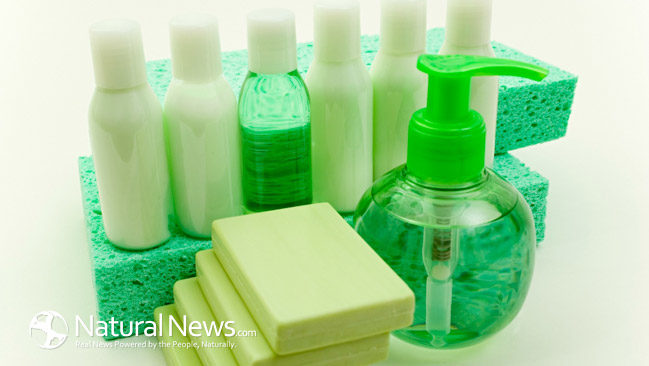This world is full of viruses and unfriendly bacteria, and that has made chemical cleaners a staple in homes everywhere. Children, seniors, and health issues make it even more important to keep the home free of microscopic nasties — a point made quite clear by the TV commercials made by big brand chemical companies. While chemical conglomerates may get all the credit when it comes to cleaning, there are natural options that can also knock out germs while delivering a fabulous toxin-free shine. Whether you’re looking to cut back on health aggravations or you want to go green for the family, pull out those chemicals under the kitchen sink to make room for these healthier eco-friendly alternatives.
Vinegar
Thanks to a composition of 5% acetic acid, vinegar boasts an acidity that can kill a whole list of germs — viruses and bacteria included. It’s a famous natural cleaner that’s favored by green and thrifty moms everywhere; especially since it’s a safer alternative to bleach that isn’t nearly as taxing on grout and flooring.
Vinegar can find a place in every cleaner’s heart, but there are a few things worth noting. It’s acidity make it a great disinfectant, but it doesn’t seem to have much power with bacteria like salmonella. The slimy biofilm keeps vinegar out and allows the bacteria to continue thriving, so anything that comes into contact with raw meat and eggs are at higher risk of such contamination. In this case they’re better cleaned with hot soapy water, a stronger disinfecting agent, or used with a combination of vinegar and a strong antimicrobial essential oil.
And while vinegar makes a quick and convenient disinfecting spray, it’s not going to work much magic for fixtures needing a good scrub down. It can help loosen up soap scum because of basic chemistry (soap = base, vinegar = acid) but there’s sure to be some sweat involved. Maximize cleaning efforts by using a natural abrasive cleaner that will maximize elbow grease potential.
Baking Soda
Sodium bicarbonate has it’s place in the hearts — and bellies — of bakers everywhere, but it’s just as worthy of space in the cupboard as it is under the sink.
This mild alkalizing agent serves as an abrasive that makes scrubbing both gentle and effective. It also doubles as a deodorizer thanks to it’s ability to neutralize odors. When it comes to scouring the soap scum and rings in sinks, toilet bowls, and bathtubs — using baking soda as a cleaner practically guarantees a quicker and easier cleaning.
Cream Of Tartar
Lovers of meringue and snicker doodles already appreciate this little powder, but it deserves a whole lot more love. This gentle abrasive is an excellent scouring agent with whitening abilities that can kiss those stains, rings, and discolorations goodbye. If that isn’t cool enough, it turns out that the tartaric acid we call cream of tartar is a direct byproduct of the wine-making process, so you’re cleaning efforts double up to re-purpose too.
Hydrogen Peroxide
All that talk of hydrogen peroxide being good for our wounds seems to be a myth; but whether or not it’s an antiseptic, it IS a cleaner. The bubbling action of this natural compound makes it a powerful debriding agent that can lift even the most stubborn dirt to the surface. Due in part to this, it makes an excellent whitening agent that can clean up rings and stains of every kind. If your bathroom has mold problems and tile grout, this is a must-have.
Essential Oils
Have you seen all the essential oil posts popping up on Pinterest and Facebook? If you have yet to jump on the bandwagon, then their cleaning benefits are sure to change their mind.
Essential oils boast fabulous fragrances that happen to come with fabulous compounds. Plants like tea tree and oregano have a composition that makes them incredible anti-fungals, and herbs like lavender and lemongrass offer antibacterial properties. If that’s fabulous enough, they can be added to all your favorite DIY cleaners to skyrocket their cleaning properties. Whatever the needs of your bathroom or kitchen may be, every room in the house can benefit from essential oils. Just make sure you’re buying quality oils that aren’t diluted or extracted with chemical solvents.
Cleaning Materials
While you’re scrubbing, make sure that your cleaning equipment is as clean as your counter tops. Items like dish brushes and sponges can become a breeding ground for bacteria, so they should be cleaned regularly. Mops should be well-rinsed and dried, rags should be washed well with hot water, and sponges and dish brushes should be thrown into the dishwasher with the next round of dishes.





